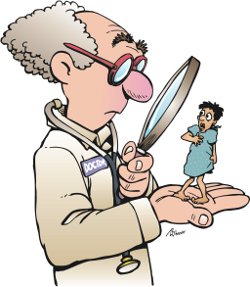Was Your Child Labeled
with a Mental Disorder?
Advice for Parents
If your child has been labeled with a mental disorder, you may be feeling confused about your options for treatment, maybe even pressured by your child's school.
Click Here for Step-by-Step Rules, Stories and Exercises to Practice All English Tenses
- Attention Deficit Hyperactivity Disorder (ADHD)
- Depression
- Bi-Polar Disorder
- Anxiety
- Oppositional Defiant Disorder
- Obsessive Compulsive Disorder
Teachers, counselors, and doctors may suggest medication (psychiatric drugs) to help your child control unwanted behaviors.
Alarmingly, drugs have quickly become the first defense for battling unwanted behaviors in children.
According to the pamphlet Psychiatric Drugs and Your Child's Future, there has been a radical increase in children and teenagers being prescribed psychiatric drugs.
Frighteningly, an increasing amount of these children are under 6 years of age.
Before putting your child on any
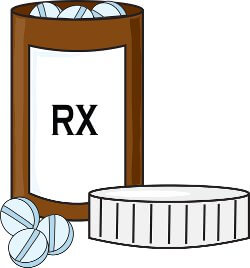 medications, you need to
know the
facts.
medications, you need to
know the
facts.Remember, you know your child better than anyone else and, ultimately, this is your decision.
Many of these medical conditions are often blamed on a "chemical imbalance" in the brain.
Before anything else, you should know that there are no medical or scientific tests that can prove your child has a chemical imbalance or mental disorder.
There are no blood tests, brain scans, or x-rays that can show you that your child has a "mental disorder." It remains a theory.
So, what can you do?
1. If drugs are recommended, thoroughly research risks, warnings, and side effects.
Medication is not the answer to educational problems. However, if you do choose to medicate your child, make sure you know the potential risks.Research warnings and side effects so you can make an informed decision about prescription medications.
Common side effects of psychiatric drugs often prescribed for these disorders include:
- addiction
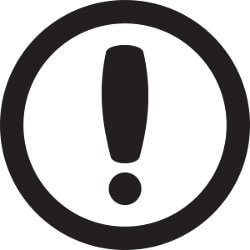
- hallucinations
- heart problems
- diabetes
- seizures
- depression
- psychosis
- anxiety
- agitation
- delusions
- coma
- amnesia
- hostility
- aggression/violence
- self-harm
- homicide
- suicide
- death
Note: There can also be withdrawal side effects when stopping these drugs.
Get informed!
- Visit your child's doctor and talk about your
concerns. Ask about possible side effects of medications. Make sure
the doctor is not associated with any drug company. Many
doctors receive bonuses if they put patients on drugs.
- You can research
side effects online by visiting the Citizens
Commission on Human Rights (CCHR) website.
CCHR provides updated side effects information, warnings, and studies of commonly prescribed psychiatric drugs. You can print this information to share with your child's doctors.
- You can also visit the U.S.
Food and Drug Administration website, where you will find
information about FDA-approved drugs. Using the links provided on their
website, you can view medication guides, safety alerts, side effects,
warnings and more. You can even use their search feature to find
information for specific medications.
- The U.S. National Library of Medicine also maintains a helpful website called "Medline Plus." Search or browse for information by brand name or generic name.
2. Investigate the reasons.
Avoid the usage of drugs to hide the problem. Instead, investigate the reasons for the problem. (If there really is one. Sometimes the problem may be the teacher's.)As a parent, you know that there are many things that can disturb your child. Talk to your child about his or her concerns or troubles in and out of school. Examine your child's interactions with family members and peers. Your child's health can even be a factor.
Take some
time to investigate your child's life at school and at home.
At school
Visit your child's school and sit in on classes and activities. Talk to teachers, staff, and your child about any issues that may be causing unwanted behaviors, depression, anger, or anxiety.
Consider these questions:
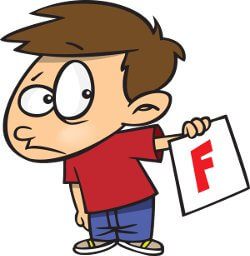
- Does your child feel safe at school?
- Is your child being bullied?
- Is your child bored in the classroom?
- Does your child struggle academically?
- Does your child have a good relationship with teachers and
staff?
- Does your child have friends?
- Does your child participate in any extracurricular activities?
At home
Think about your child's home environment. Is there a source of stress within the family that may be causing your child to become withdrawn or to misbehave?
- Has there been a recent divorce or death?

- What is your child's relationship with his or her siblings?
- Has your family recently moved or has your child changed
schools?
- Do you and your spouse argue often?
- Does your child participate in any extracurricular
activities?
- Is your child exposed to violent movies, television shows, or video games?
Health
Consider your child's health. Does your child maintain a healthy diet? Studies show that diet and exercise can affect behaviors and emotions.
Make sure that your child maintains a balanced diet, gets enough sleep, and has regular exercise. Encourage your child to join a club or team or participate in athletics. Help your child set a schedule and stick to it.
In addition, there may be underlying, undiagnosed physical problems that are affecting your child's behavior. Poor eyesight, chronic headaches, allergies, low blood sugar, and vitamin deficiencies can all cause changes in behavior.
Contact your child's doctors for physical and eye examinations.
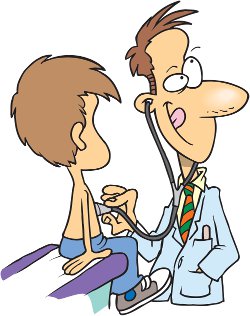
3. Consider other alternatives to medication.
In addition to dealing with undiagnosed physical ailments, there are also many non-drug alternatives and solutions for dealing with the unwanted behaviors that led your child to being labeled with a mental disorder.Safe alternatives can include:
 change in diet
change in diet
- vitamins and other needed food supplements
(You can use a professional expert to find the ones your child is missing.)
- regular exercise
- chiropractic medicine
- educational solutions
- tutoring
- healthy, safe environment
- activity that promotes confidence
Always find the cause of your
child's problem.
Don't be satisfied with a mere explanation of the symptoms.
Click here to learn more about safe alternatives to psychiatric drugs.
Don't be satisfied with a mere explanation of the symptoms.
Click here to learn more about safe alternatives to psychiatric drugs.
Know
your rights!
It
is important to know your rights. Your child is your responsibility and
you have the right to make decisions concerning your child's health and
wellness.- Schools cannot
require your child to take prescription drugs.
- Schools cannot
pressure you to medicate your child.
- Schools cannot stop your child from coming to school if you choose not to medicate.

Get Updates, Special Offers, and English Resources
Download your FREE GIFT (the first two chapters of
English Short Stories Book and Workbook)
as soon as you join!

By submitting your email, you consent to receiving updates and newsletters from us and to the sharing of your personal data with third parties for the purposes of sending you communications. We will not spam you. You can unsubscribe at any time. For more information, please see our privacy policy.
Return
from Has your child been labeled with a mental disorder?
to How to
Teach English

